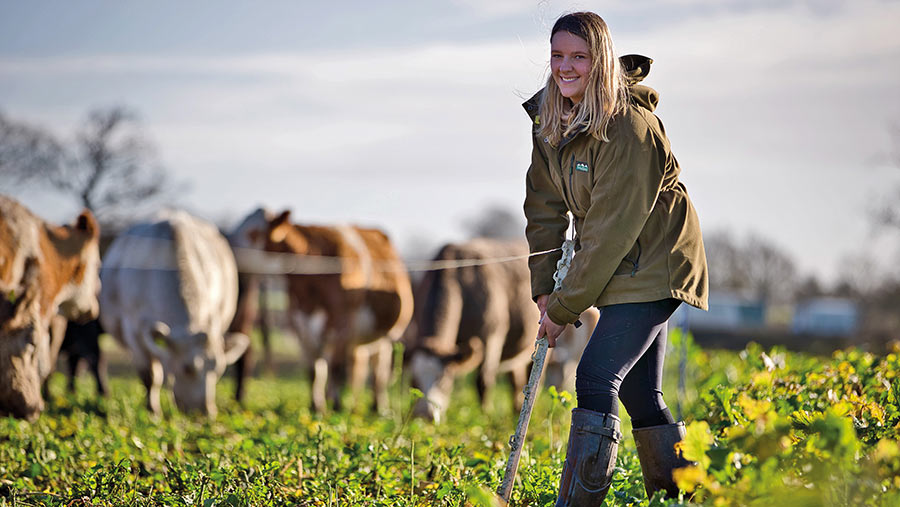Charlie Beaty: Government needs to get some mud on its boots
 © Richard Stanton
© Richard Stanton It comes as no shock that the government’s newly published food strategy completely fails to address the environmental and health issues it was supposed to, seemingly ignoring most recommendations from its own food adviser, Henry Dimbleby.
One of these – and quite a major one IMO – is how diets must shift away from greenhouse gas-intensive meats, calling for a reduction in overall consumption of meat, encouraging consumers to adopt a “quality over quantity” attitude.
See also: Charlie Beaty – grab opportunities while you’re young
With the whole “cow kills planet” attitude seemingly rife nowadays, I’m surprised there seems to be zero mention of this.
Now, I can hear you getting all het up at me mentioning a reduction in meat consumption.
But don’t panic – note “quality over quantity”. We all know that completely cutting meat from our diets isn’t the solution.
We must continue to market British agriculture to its full potential, and help consumers make informed choices about their food and the impact its production has on the environment.
The strategy talks of how the UK produces 60% by value of all the food we need and how 57% of agricultural output comes from just 33% of UK farmland.
It then goes on to state this allows us to target land-use change for environmental benefits toward the least productive land.
It acknowledges that food security and self-sufficiency are not the same thing, due to consumer demand for diet diversity and the consumption of foodstuffs that cannot be produced domestically.
But I fear there is little for farmers to go on.
We all have areas that produce naff-all and would be much better off as a wildflower plot.
But it concerns me that this statistic can be turned around to say that 43% of agricultural output comes from an “inefficient” 67% of land – likely made up of our extensively grazed, permanent pastures.
I wonder if ministers understand the environmental benefits of well-managed pasture?
There is also very little mention of the rising costs of production. So how is our industry expected to maintain the same production levels sustainably, while also turning a profit?
My opinion of government food policy still stands – it’s a romantic idea, but come back to us when you’ve addressed the real practicalities.


